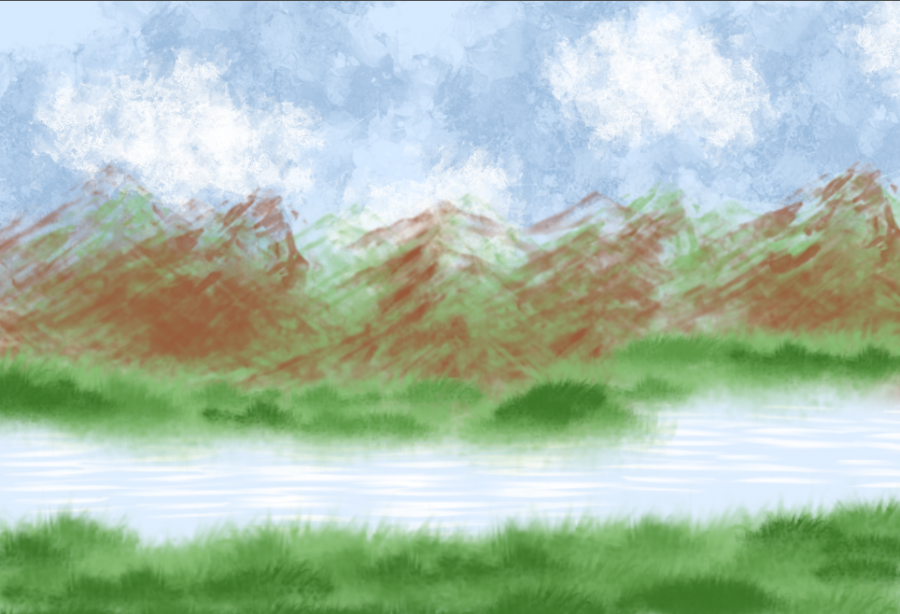OPINION: Support the Recovering America’s Wildlife Act
Washington’s wildlife will benefit immensely
RAWA will protect aspects of Washington’s outdoors that other laws will not.
July 1, 2020
Right now, hunter- and angler-led activist groups are driving the meteoric path of the Great American Outdoors Act. If enough people call their house representatives, then the Great American Outdoors Act could pass the House and be signed by the POTUS.
As big a win as that would be, it would only allocate federal money to be spent generally, on national priorities, leaving some voids at the state level. On the other hand, a separate act called the Recovering America’s Wildlife Act would allow state and tribal agencies to apply for grants specifically designated for the wildlife and habitat in greatest need within our state.
Jason Wettstein, community relations and social media manager for the Washington Department of Fish and Wildlife, wrote in an email that under RAWA, Washington would receive $21.8 million and will have to match $7.3 million.
“In Washington alone, we have 268 species and 30 habitats of greatest conservation need,” Wettstein wrote. “RAWA provides a unique opportunity to fill this perpetual void. The bipartisan bill would provide states and tribes with dedicated and sustainable funding to protect and restore our most vulnerable species.”
Due to COVID-19-related reasons, including hunter education going completely online for the first time in Washington’s history, Americans have had more free time to take hunter education courses.
WDFW has created a virtual field day that will replace the field day requirement of hunter education during the pandemic for anyone over 9 years old, WDFW Communications Manager Samantha Montgomery said.
The transition may cause people to worry about safety. Montgomery said safety is the number one concern and is what drove WDFW to make their virtual experience as complete as possible.
Montgomery said she believes anyone who graduates from the course will have the knowledge required to take to the field safely. She also said now is a great time to take the course because many people are still stuck at home and hunting season will begin soon.
One model that currently exists to help wildlife is the Pittman-Robertson model introduced in 1937, also called the Federal Aid in Wildlife Restoration Act.
Pittman-Robertson is an 11 percent tax on all hunting and shooting equipment paid by wholesale manufacturers, which then goes toward conserving wildlife. The tax encompasses guns, ammo and has been expanded to include archery equipment.
Many local businesses based around outdoor recreation have been doing well, even during the pandemic.
Justin Grimes, pro shop manager of Diamondback Shooting Range in Lewiston, said there have been more customers than you can shake a stick at.
“Most of the [Pittman-Robertson] money comes from over there,” Grimes said, pointing at the gun corner of the store. “It’s not all conservationists, but everyone who comes in here to buy ammo or guns is paying that 11 percent conservation. There have been a lot of them coming in and that is great.”
Corporate taxes being used to fund management plans developed by boots-on-the-ground knowledge is what brings us back to the plan to recover America’s wildlife, and why I think 2020 is the year we will begin to do so.
RAWA has undergone little movement since its 2019 introduction by Debbie Dingell, U.S. Representative for Michigan’s 12th congressional district.
If the name “Dingell” sounds familiar, it’s most likely because it is attached to one of the primary funding mechanisms for conservation: the Dingell-Johnson Act.
Dingell-Johnson is an excise tax on sport fishing equipment. Funds are used to sustain the waters on which the fishing takes place. It was drafted by Debbie’s late husband, John Dingell, the longest sitting senator in U.S. history.
John was known for his role in saving the auto industry and passing the Clean Air Act, Clean Water Act, Endangered Species Act and Civil Rights Act after returning from WWII.
More hunters will mean more money toward larger conservation coffers as a direct result of the Pittman-Robertson models as well as state-managed wildlife programs and migratory bird authorization stamps. We’ll see the growing constituency of young activists with vested interests in the environment which will lead to positive legislative change.
There is a dark horse in 2020 called Recovering America’s Wildlife Act. It was introduced by Debbie Dingell and, as outdoor patriots, we owe it to our history to give this bill a good look, and a hard push toward the White House for a signature. If we ignore this Dingell dark horse, we’ll tarnish the national record that folks like the great Michigander John Dingell have fought since WWII to help us build.

















